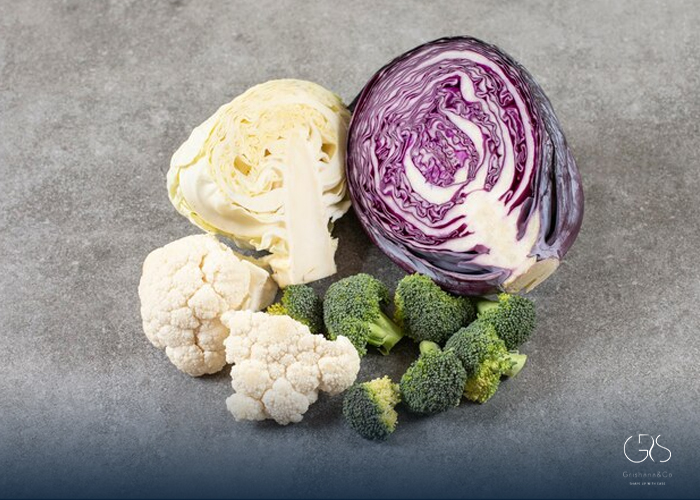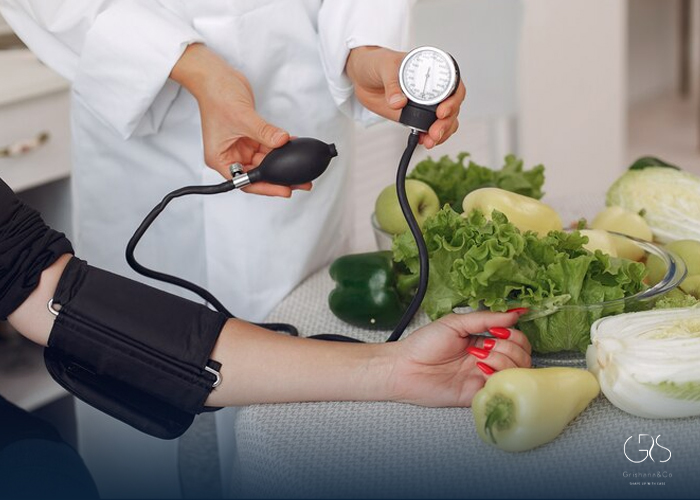High blood pressure, also referred to as hypertension, is a prevalent health concern affecting many individuals globally. The World Health Organization (WHO) states that cardiovascular diseases, often associated with high blood pressure, are the primary cause of death worldwide, with around 17.9 million annual deaths. Lifestyle adjustments, such as dietary changes, are often advised for blood pressure management and prevention. Recent research indicates that integrating specific vegetables, particularly cruciferous vegetables, into one’s diet may provide substantial advantages in blood pressure management.
A Closer Look at the Study
A study published in the Journal of Hypertension conducted a meta-analysis of 24 clinical trials involving over 1,500 participants to examine the effects of consuming different types of vegetables on blood pressure. The researchers found that incorporating cruciferous vegetables, such as broccoli, Brussels sprouts, and cabbage, into the diet was associated with a modest but significant reduction in both systolic and diastolic blood pressure. The study also highlighted the potential role of specific bioactive compounds present in these vegetables, including sulforaphane and glucosinolates, in contributing to their beneficial effects on blood pressure.
(If you’re interested in learning about broccoli types , I suggest checking out this informative article.)

Why Cruciferous Veggies May Have an Edge
Cruciferous vegetables have long been recognized for their potential health benefits. They are rich in nutrients such as vitamins, minerals, and fiber, and are also known for their anti-inflammatory and antioxidant properties. Furthermore, the presence of bioactive compounds like sulforaphane in cruciferous vegetables has been linked to various health-promoting effects, including cardiovascular protection and improved vascular function. These factors combined may explain why cruciferous vegetables stand out in their potential to lower blood pressure compared to other types of vegetables.
Other Ways to Lower Blood Pressure
While the findings of the study are promising, it’s important to recognize that blood pressure management often requires a multifaceted approach. Along with adding more cruciferous vegetables to your diet, adopting other healthy lifestyle habits can play a crucial role in lowering and maintaining healthy blood pressure levels. These habits may include reducing sodium intake, increasing physical activity, managing stress, limiting alcohol consumption, and maintaining a healthy weight. Furthermore, following a balanced diet that emphasizes whole foods, lean proteins, healthy fats, and a variety of fruits and vegetables can contribute to overall cardiovascular health.
(Interested in learning about high blood pressure diet? Check out this informative article.)

Conclusion
The potential benefits of incorporating cruciferous vegetables into the diet for lowering blood pressure are supported by emerging evidence. However, it’s essential to remember that individual responses to dietary changes can vary, and consulting with a healthcare professional or a registered dietitian is recommended when making significant dietary modifications, especially for those with pre-existing health conditions.
In conclusion, while adding cruciferous vegetables to your diet may offer potential benefits for lowering blood pressure, it should be combined with other healthy lifestyle modifications for optimal cardiovascular health.
Sources
- World Health Organization, Hypertension
- World Health Organization, Cardiovascular diseases (CVDs)
- Centers for Disease Control and Prevention, High Blood Pressure
- Harvard T.H. Chan School of Public Health, The Nutrition Source - Vegetables and Fruits
- Journal of Hypertension,










